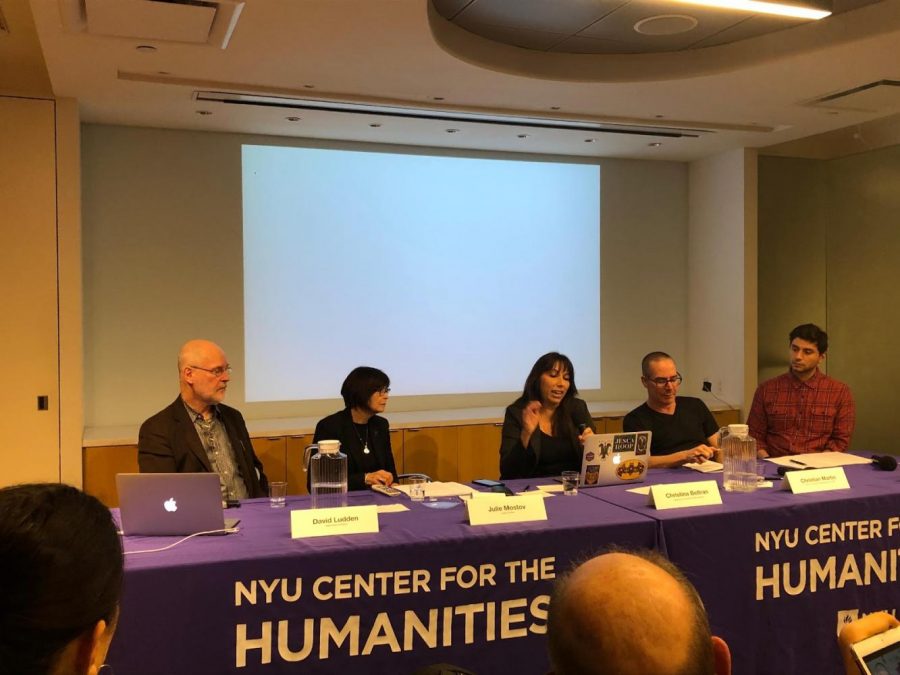Around 50 NYU students and faculty members gathered on the 5th floor of 20 Cooper Square Tuesday afternoon, attending the first installment of a series of panel conversations on conceptual and political issues regarding borders.
Organized and moderated by Liberal Studies Dean Julie Mostov, the Border Talks series invites faculty members and scholars from different schools and disciplines at NYU to discuss the conceptual definition of borders and how this definition relates to mobility, opening, closure and resistance.
“We have to challenge the assumptions about the naturalness [of] the borders and challenge the assumptions about the need to have hard borders in order to protect national spaces, democratic practices or different ways of living,” Mostov said. “I want to bring together different people who would problematize the notion of borders, and think about mobility, or immobility from various different perspectives.”
This installment featured five panelists including Mostov and four other faculty members from the College of Arts and Science. The discussion focused on the concept of ‘hard borders’ and how they are influencing migration, discrimination, racialized violence and opportunities for international collaboration.
Mostov began the panel by challenging the ‘hard border’ logic, arguing that in a modern context, extending borders is how a nation upholds democratic ideals.
“We have given in to securitizing pressures, to close and harden borders, encouraging fixed definitions of difference and institutional practices of violence,” Mostov said. “We have accepted the logic of undemocratic practices to protect our democratic way of life.”
Christian Martin, the Max Weber Visiting Chair in German and European Studies, agreed with Mostov’s claim, citing the European Union as an example. While the union is open to economic collaborations across borders, it has increased spending towards migration containment. Between the periods of 2014-2020 and 2020-2027, the EU’s budget for external border management will increase by 21.9 billion dollars.
“It’s a simultaneous development that hardens the border against people but opens it for capitalist goods and services,” Martin said.
History professor David Ludden contextualized border economics in studies of the Rakhine state in Myanmar. He referred to the ethnic cleansing of Rohingya Muslims from the country beginning in 2017, leading 730,000 Rohingya to flee to the neighboring country of Bangladesh.
English professor Simón Trujillo, who specializes in Chicano and Latino studies, offered insight on Mexican population history, adding that the immigration rate from Mexico to the U.S. is now negative, contrary to popular belief.
Global Liberal Studies professor Karen Karbiener lauded the diversity in academic fields and political issues represented at the event.
“From the coronavirus to immigration issues, to migrant issues,” Karbiener said. “I was just interested in the different approaches people would bring to this topic. So here you have people from different departments from NYU — a very diverse panel.”
GLS junior Rosamaria Diaz said she had taken classes with some of the panelists before and was eager to see them discussing politically relevant topics outside of the classroom.
“I just wanna see them interacting with each other because I know some of them have very different perspectives on the issue at hand; especially right now it’s a very politicized world,” Diaz said.
Email Franswa Zhang at [email protected]


























































































































































